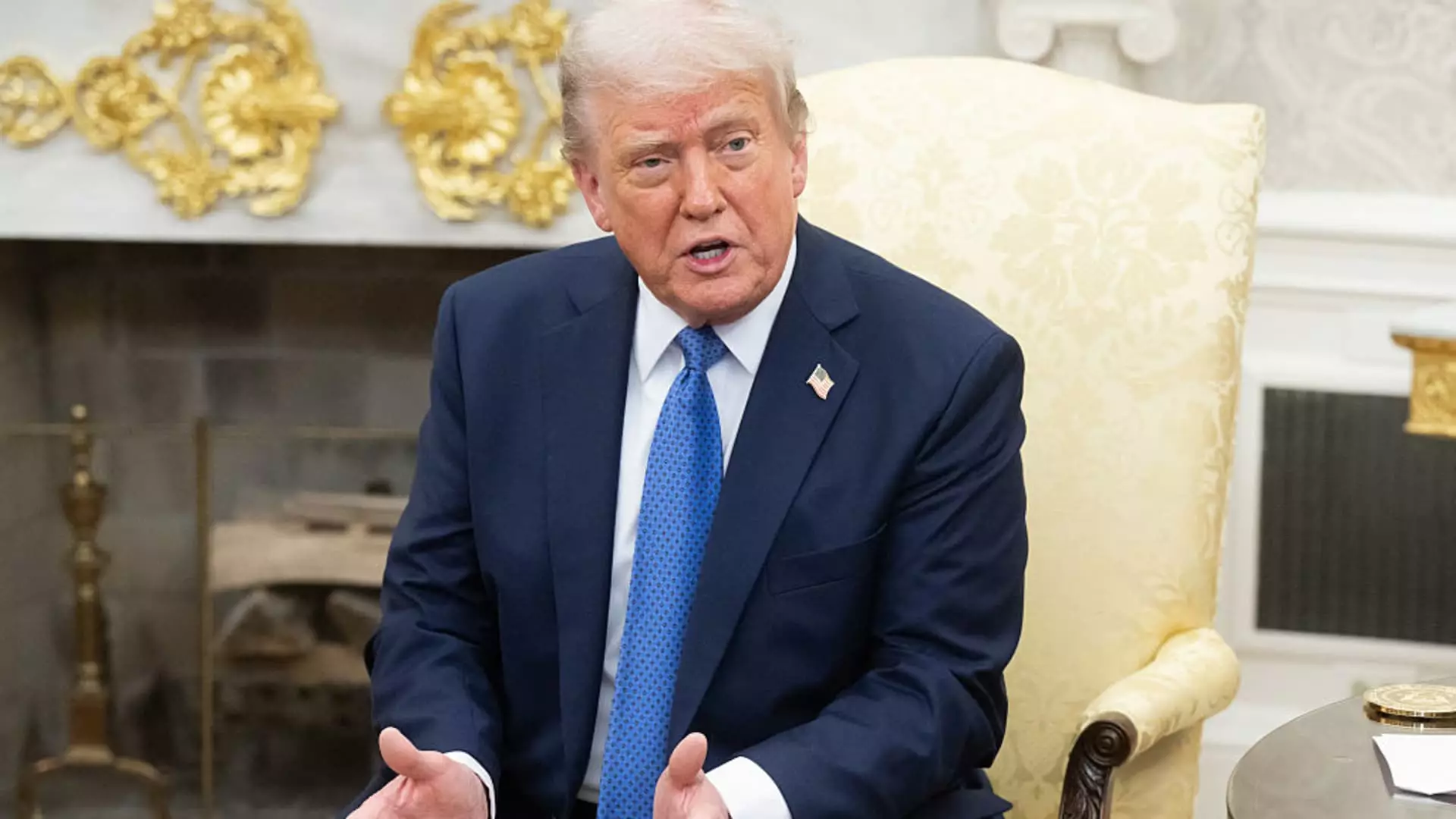President Donald Trump’s recent economic maneuvers involving tariffs are emblematic of a president seemingly out of touch with the realities of the financial markets. His decision to postpone reciprocal tariffs against U.S. trading partners was cloaked in bravado, as he dismissed the turbulence in the bond market as a mere inconvenience. Yet, to label this as an uninformed or careless approach would be to underestimate the serious implications of such decisions. Trump’s cavalier attitude towards economic risks suggests a dangerous neglect of the complexities involved in global trade relations.
The Illusion of Strength
During interviews, Trump deflected concerns regarding the sell-off in the bond market, suggesting that he was unaffected by its chaotic swings. This self-assurance, however, raises fundamental questions about his understanding of the interconnectedness of economic factors. The bond market serves as a barometer for investor confidence and economic stability; a rapid rise in yields typically signals skepticism about growth prospects. Such indecision while asserting that he knows what “we have” does little to instill faith among investors concerned about inflation and a potential recession.
Symbolic Tariffs: A Double-Edged Sword
The announcement of broad tariffs was not merely a routine policy shift but rather a declaration of economic warfare. By slapping on 10% duties across the board, Trump aimed to send a message while simultaneously igniting apprehension in financial markets. The resultant sell-off illustrates the fear that accompanies ill-considered economic policy. Yet, Trump proclaimed a 90-day hiatus on reciprocal tariffs to negotiate better terms, further complicating an already ambiguous stance. This inconsistency demonstrates a lack of coherent strategy and an inability to manage international trade relationships effectively.
Reckless Confidence in ‘Victory’
Despite proclaiming a potential 50% tariff rate as a sign of “total victory,” Trump’s perspective is nothing short of alarming. This mentality reflects a misunderstanding of how such extreme measures can ripple throughout the economy. The impact of long-term tariffs could harm both consumers and businesses, ultimately hampering economic growth rather than fostering it. Economic leverage should not be wielded as a blunt weapon; it requires finesse and the willingness to acknowledge the repercussions of one’s actions.
The Political Fallout
Trump has positioned himself as a champion of the American worker; however, his decisions could have the opposite effect. The concerns surrounding inflation and recession tied to his aggressive tariff policies resonate with a populace unhappy with the status quo. While some may initially cheer the notion of protecting American jobs, the reality is that overzealous tariffs can lead to higher consumer prices and job losses in sectors dependent on global supply chains. The irony of advocating for American interests while jeopardizing them cannot be overlooked.
Ultimately, Trump’s approach exemplifies a reckless gamble with the future of the American economy. His dismissal of market signals and the complexities of international trade reflects a troubling detachment from responsibilities that come with presidential leadership. The implications of these decisions extend far beyond simple political posturing; they have tangible consequences for the average American. In a climate already fraught with uncertainty, a more judicious and informed approach is not just advisable—it is imperative.

